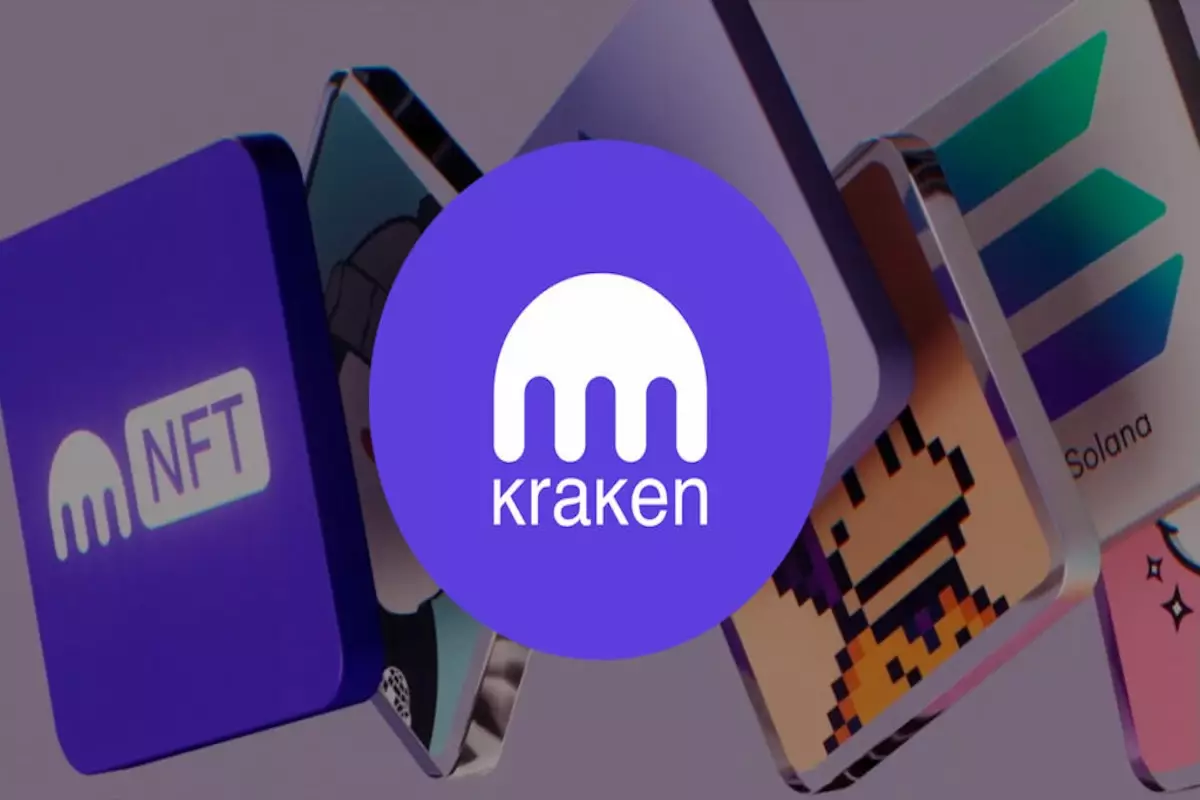Recently, Kraken, a prominent player in the cryptocurrency exchange landscape, announced the impending closure of its non-fungible token (NFT) marketplace. This decision marks a significant pivot for the company as it seeks to redeploy its resources towards new, strategic endeavors. The marketplace will enter withdrawal status on November 27, with complete shutdown anticipated within three months, underlining a proactive response to the evolving dynamics of the crypto ecosystem.
Kraken’s rationale for shuttering its NFT marketplace revolves around prioritizing other promising projects that align with its long-term vision. The company intends to focus on developing its own blockchain, slated for launch in 2025, suggesting a strong commitment to innovation rather than merely participating in existing markets that show signs of stagnation. This pivot towards foundational technologies indicates Kraken’s desire to stay relevant in a rapidly changing crypto landscape.
The decision to close the NFT marketplace also highlights broader trends within the NFT sector. Since April 2024, weekly trading volumes for NFTs have persistently lingered below the $200 million mark, showcasing the market’s lackluster performance. While iconic collections like CryptoPunks maintain a level of engagement, overall enthusiasm for NFTs appears to have waned substantially. Kraken’s exit from the NFT marketplace reflects a larger tendency among crypto firms to reassess their priorities and operations amid this downturn.
As Kraken steps back, it sets a precedent that may influence other companies in the crypto domain. The fate of the NFT market—especially in the wake of decreased trading volumes—rests heavily upon the reactions of collectors. As users migrate towards established platforms like OpenSea and Rarible, new competitive dynamics may emerge, potentially revitalizing the NFT trading ecosystem.
The closure brings forth considerable implications for NFT collectors. First and foremost, collectors must act swiftly to secure their digital assets. This involves transferring NFTs to Kraken Wallet or other self-custodial wallets to enhance security. Exploring alternative marketplaces that offer a comprehensive trading experience will be crucial for maintaining an active presence in the NFT landscape.
Prominent platforms like OpenSea, which supports a diverse array of blockchains and boasts an extensive array of NFTs, remain viable alternatives. Rarible, with its decentralized governance through the RARI token, appeals primarily to creators seeking more control over their digital assets. However, even leading platforms face challenges, and this shake-up in the market landscape may spur innovation as they strive to improve user experiences and security measures.
Kraken’s withdrawal from the NFT space underscores the necessity for marketplaces to adapt effectively to changing market demands. As the industry evolves, key areas that NFT platforms must prioritize include security, user-friendly trading systems, and innovative features that set them apart from competitors. The shifting priorities of companies like Kraken hint at a broader transformation within the cryptocurrency industry, emphasizing the need to look towards long-term viability and technological advancements.
For marketplaces to thrive, they must seek pathways for growth through unique offerings, enhanced user trust, and regulatory compliance. Initiatives such as Kraken’s blockchain development may pave the way for fresh opportunities and groundbreaking advancements in the crypto world. With the NFT marketplace at a crossroads, the next few years promise to be crucial as competition sparks innovation and shapes the future of digital collectibles.
The closure of Kraken’s NFT marketplace serves as a critical reminder of the volatility inherent in the cryptocurrency sector. While challenges abound, the situation also provides fertile ground for innovation and reinvention across the industry. As collectors, creators, and platforms navigate this shifting terrain, agility and forward-thinking strategies will be essential for survival and success in the digital asset space. The NFT market may be confronting rough waters now, but the determination to innovate could lead to a more robust ecosystem in the future.








